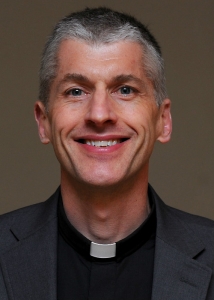 By Rev. Craig Pederson
By Rev. Craig Pederson
As we enter this 500th anniversary month of the Reformation, much will be written and spoken about the ongoing impact of that epochal period. Churches from all around our synod have sponsored trips to the sites where Martin Luther ignited a revolution of theology and practice in the church. Our companion synod partners in the Leipzig district of Germany have been serving as global hosts, showing hospitality to visitors from all over the world – including Bishop Ann Svennungsen and a delegation from our synod last May.
Closer to home, I have been thinking about the impact of the Reformation on our local churches today. The magnitude of the shifts set in motion 500 years ago can be hard to contextualize in our Upper Midwestern, North American context now.
But as I try to find some common themes, one word keeps coming to my mind – okay, maybe two. The first is “grace.” That word is like a balm for our turbulent times, just as it was in 16th-century Germany.
The other word is “disequilibrium.” In a church that had gone largely unchallenged for centuries, Martin Luther injected into the church all sorts of questions and doubts about the status quo. These questions and doubts disrupted the church from top to bottom. They also opened up dialogue – some constructive, some adversarial – about how the church was called to embody the love of Christ in order to serve the people and not the institution.
A SIMILAR SET OF questions and doubts are challenging the church today. From small prayer circles to global Christian organizations, God’s people are asking how we are to embody Christ’s love in the context of rapidly changing cultural conditions.
This kind of unsettledness in any system creates anxiety and uncertainty. A natural way for people of faith to respond is to try to minimize the disruptive forces and to provide comfort to one another.
“The word ‘grace’ is like a balm for our turbulent times, just as it was in 16th-century Germany.”
But this kind of response may well be to our peril. To get from one state of being to the next, a disruption must occur. We can shield our eyes from it, or run away from it, or minimize it, but these types of responses are essentially avoidance of the work God is calling us to do at this historic moment in the church. Ron Heifetz, whose research on adaptive change has become foundational for many church leaders, says, “Avoiding disequilibrium results in avoiding the work.”
So along with grace, how can we embrace this time of disequilibrium to create healthier, life-giving churches? How can we “re-form” and find new forms of church practice where deep and abiding faith can take hold?
It is a privilege for my colleagues and me to do this important work with you, even as we do the same work around our own synod practices. Please let us know how we can be of assistance to you!
